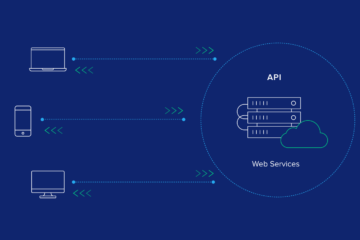The internet has become integral to our life in the current digital era. The development of social media, e-commerce, and virtual communication has transformed how we engage with one another and our surroundings. Yet, this independence entails a risk of being exposed to offensive material, cyberbullying, and online predators. Internet filters have grown in popularity as a solution to these issues. Still, they also offer benefits and drawbacks of their own. In this piece, we’ll examine the advantages and disadvantages of internet filters and provide tips for responsible and safe web usage.
What are internet filters?
Internet filters are computer applications that prevent or limit access to particular kinds of internet material. An application to recognize and filter out hazardous or unacceptable content, including pornography, violence, hate speech, and viruses, these applications employ a variety of strategies. Additionally, some filters let users establish precise blocking preferences, including preventing access to particular websites or keywords.
Internet Filters Types
Internet filters come in a variety of forms, including:
• Hardware filters: These objects are connected to a computer or network and use the network to filter content. Schools, libraries, and companies frequently employ hardware filters to limit access to objectionable content.
• Software filters are applications that load on a computer or mobile device to filter content at the device level. For example, parents frequently employ software filters to shield their kids from hazardous web content.
• Browser filters: These tools are pre-installed in web browsers that let users restrict specific content types, like pop-up ads, cookies, and JavaScript.
The Pros of Internet Filters
Defending against hazardous content
Users can be shielded from unsuitable or dangerous content such as pornography, violence, and hate speech by using internet filters. Children and young people, who may be more susceptible to the harmful consequences of such content, should pay particular attention to this.
A rise in productivity
By limiting interruptions and time-wasting activities, internet filters can enhance productivity. In addition, filters can assist staff members in maintaining attention and staying on the job by preventing access to social media, gaming, and other unrelated websites.
Fewer time-wasting activities and diversions
For students and kids, internet filters can also aid in reducing distractions and time-wasting activities. For example, filters can assist kids in maintaining their attention on their schoolwork and other valuable activities by limiting their access to social media and online games.
Parents’ and guardians’ peace of mind
Internet filters can give parents and guardians piece of mind by shielding their kids from hazardous online content. In addition, parents can increase their sense of security about their children’s safety and protection by setting up personalized blocking preferences and watching their kids’ internet activities.
Respect for legal requirements
Internet filters must be installed in some institutions, including schools and libraries, to safeguard minors from harmful content online. Using internet filters, these firms can adhere to legal standards and avert potential legal penalties.
The Cons of Internet Filters
Excessive banning of appropriate content
The possibility of overclocking appropriate content is one of the significant downsides of internet filters. Access to research papers, works of art, and other instructional or entertaining content may occasionally be restricted via filters.
False sense of security
Users who assume they are entirely protected from hazardous online content may get a false sense of security from internet filters. Filters could be better, though, and clever users frequently figure out how to get around them.
Lack of customization and flexibility
Users may need help to precisely customize some internet filters’ blocking preferences due to restricted modification possibilities. Unfortunately, this can make you angry and doubt the filter’s ability to work.
Limitation of freedom of speech and expression
Internet filters have the potential to restrict free speech and expression by preventing access to potentially divisive or unpopular websites and material.
Those who appreciate free speech and unrestricted access to information may find this an issue.
Costs and restrictions on technology
Technical challenges, including incompatibility problems, sluggish performance, and prohibitive pricing, can constrain internet filters. In addition, while some filters may slow down internet connections or need expensive subscriptions, others may call for particular hardware or software setups.
Navigating the Web Responsibly
Internet filters help guard against hazardous content online, but they are not an exclusive remedy. Responsible web usage necessitates a complex strategy combining communication, education, and the right technologies.
The following are some tips for using the internet responsibly:
Learn about digital citizenship and internet safety for oneself and others.
Keeping up with the most recent online threats and safest usage guidelines is critical. This includes being aware of frauds and knowing how to prevent them, safeguarding personal data, and avoiding offensive or harmful content.
To ensure online safety, employ various techniques, such as internet filters.
Internet filters can be a part of a comprehensive online safety plan that includes firewalls, anti-virus software, and secure passwords. In addition, users can construct a more effective defence against online threats by combining many tactics.
Check the efficiency of the internet filters and make any necessary adjustments.
Users should routinely review Internet filter preferences and settings to ensure they filter hazardous content while enabling access to legitimate stuff. This can lessen the possibility of false positives and overclocking.
Encourage parents/guardians and kids to talk openly and trust each other about online activity.
Parents and guardians should keep lines of communication with them open and observe their conduct to ensure that children are acting responsibly and safely online.
Promote self-control and responsible internet usage
In the end, safe web usage depends on personal accountability and self-control. Therefore, users should be conscious of their online conduct and take precautions to use the internet safely and responsibly.
Conclusion
Internet filters have advantages and potential problems but can be valuable tools for guarding against hazardous online content. Responsible web usage necessitates a complex strategy combining communication, education, and the right technologies. Nevertheless, we can take advantage of the advantages of the internet while lowering the risks by being knowledgeable and taking precautions to maintain online safety.




